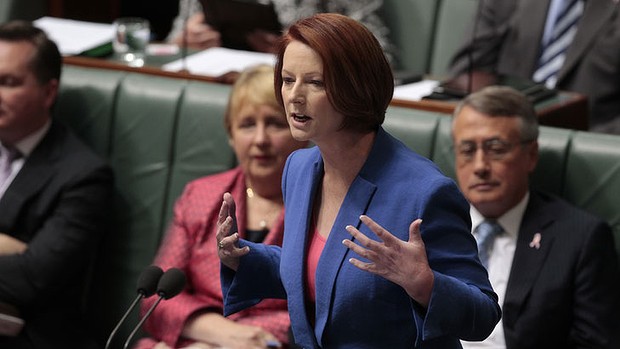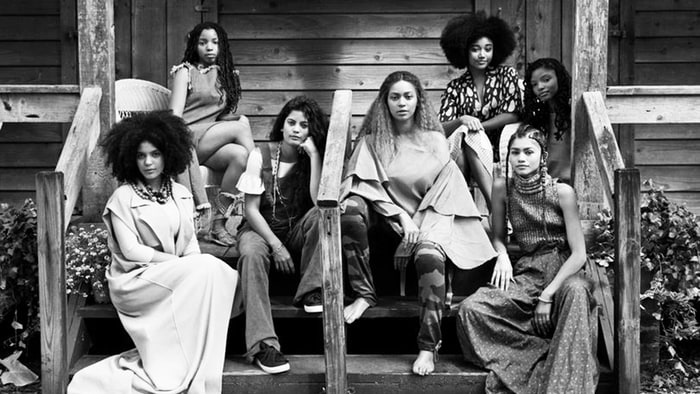The other night, at my feminist book club (yes, I am a Portlandia stereotype, what of it), we were discussing Clementine Ford’s Fight Like A Girl. While many of the younger women in the room felt galvanised by Ford’s treatise, the eldest woman in the room – one of the few seniors present – had a strong reaction to the contrary. “It made me feel terrible,” she said. “I have been working on this for so long … And it sounds like my generation achieved nothing.”
The room shifted uncomfortably. So many were new to feminism and shining-eyed, just beginning to laugh at #NotAllMen and shout back at street harassers. Here was a battler from the second wave, still eddying at the shoreline with the rest of us, a reminder that the work of social change is hard and long and cyclical. The gender wage gap has actually grown. Our first woman prime minister was treated to spectacular misogyny by the public, media, and her fellow ministers (chief of whom became her successor and the Minister For Women). In Queensland last week, even an attempt to decriminalise abortion was blocked. We have to keep fighting the same fights over and over.

At home, after book club, I read this quote from Rebecca Solnit’s Hope In The Dark: “We need a litany, a rosary, a sutra, a mantra, a war chant for our victories.” If we forget our successful milestones and focus only on how far we have to go, she urges, we risk despair and the paralysis of inaction. A huge, important part of the feminist project is identifying problems, whether it be measuring the wage gap or giving women the language to describe mansplaining. It’s important but we can’t get amnesia about how much our foremothers achieved. We need to protect ourselves from the inaction of despair.
I, personally, have gorged enough on despair lately. Last year was ridiculous, and it seems like each day of 2017 some new low is being established by the Trump administration. I need to remember how far we’ve come despite current circumstances. This International Women’s Day, I want to chant our victories, like a hopeful, non-murderous version of Arya Stark muttering a list of names to myself.
Since sometimes feminism’s successes can feel distant and intangible, I’m going to focus on just what’s happened in the past twelve months.
In November, I voted for a woman for President of the United States of America. Even her loss to a misogynist, or her flaws as a candidate, can’t erase the power that casting that ballot had for me.
Out of that horrific US election came some positives for women: Kamala Harris, California’s attorney general, became the first Indian-American and the second Black woman ever elected to the Senate; Catherine Cortez Masto became the first Latina elected to the Senate; Tammy Duckworth became the first female senator to have served in a combat zone, and the second Asian-American woman ever elected to the Senate; Stephanie Murphy became the first Vietnamese-American woman to be elected to Congress; Muslim woman and former refugee Ilhan Omar became America’s first Somali-American legislator; and Pramila Jayapal became the first Indian American woman elected to Congress. In her victory speech, she called her victory “a light in the darkness”.
Lemonade happened. Never forget.

Last year, Pakistan passed strong anti-rape laws and finally closed the legal loophole that allowed perpetrators of so-called ‘honour killings’ (the colloquialism for families murdering girls and women who have married someone of their own choosing or some other ‘shameful’ act) to avoid conviction. This progress was largely thanks to Sughra Imam, the former senator who first introduced the bill proposing the new law, and film-maker Sharmeen Obaid Chinoy with her Oscar-nominated documentary A Girl In The River: The Price Of Forgiveness. And Obaid Chinoy’s subject, Saba Qaiser – the girl whose father shot her in the head, put her in a bag and threw her in a river for marrying without his consent. But she survived. Obaid Chinoy said of Qaiser, “she was very open to telling her story because she believed very strongly that she didn’t want anyone else to go through what she had.”
The US Treasury Department announced that Harriet Tubman would replace Andrew Jackson on the $20 bill. Tubman, born into slavery in the 1820s, escaped Maryland and then immediately turned around to go back and free her family. She made around thirteen missions to rescue enslaved families and friends, in the secrecy of night, and was nicknamed ‘Moses’. Andrew Jackson was alive at the same time as Harriet Tubman; he owned hundreds of slaves. He is known for passing a law that forced First Nations Americans off their lands. Tubman’s face will replace his.
On the first day of Donald Trump’s presidency, at least five million people joined a global protest called the Women’s March, with half a million of those people marching in Washington DC. I was one of the 5,000 people marching in Melbourne, and feeling the press of bodies and seeing the signs women had made with their own hands to protest white male supremacy – it blew away the cobwebs of despair for me, for a day.


Remember that, at the Sydney Women’s March, a few Trump supporters paid $4,000 to skywrite “TRUMP” above the protest. Above the 10,000 protesters. They may have money, but we have the numbers.
Nevertheless, she persisted.
Remember our victories; build on them. Stay in solidarity with all other women, that we keep pulling each other forward with each success. Make your reproductive rights language inclusive of trans and non-binary folks; make your protests accessible to disabled people; decolonise your feminism; think beyond what the movement can do for you. What can you do for the movement?
In 2016, for many women, the world moved sharply towards a dystopia. (For many, it was already there.) In 2017, let’s imagine the kind of world we want to march towards. And persist until we get it.
Thank you for reminding me of the victories in the presence of a seemingly overwhelming fight.
“Nevertheless, she persisted.”
So glad to walk this journey with amazing women, including you!